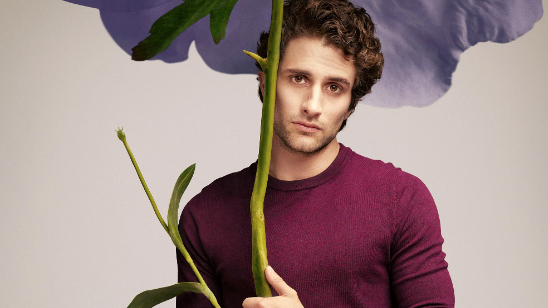
The Mexican dark comedy show, La Casa de las Flores (House of Flowers) (2018-2020) on Netflix, is a promising leap forward in the representation of LGBTQ+ characters and their stories in Mexican cinema. Following the lives of the members of an upper class conservative family and their flower business, the show takes us “behind the scenes”–prominently featuring drag queens that work at the corresponding House of Flowers cabaret, a lawyer who is transgender, and a few other impactful LGBTQ+ storylines.
However, as others have pointed out, there are a few issues with some of these portrayals. In particular, the role of María José, a transgender woman who is played by a cisgender man (actor Paco León), has elicited much criticism, prompting León to state that he understands the criticism and that he will not accept such a role again.
There is one other critique I have about LGBTQ+ representation in this show that I have not seen raised. I think it is important to draw attention to this under-acknowledged issue with LGBTQ+ representation in this show, and that is the stereotypical portrayal of the self-identifying bisexual character Julián de la Mora (played by actor Darío Yazbek Bernal, the brother of Gael García Bernal).
The show is progressive in that Julián is one of the lead characters, and the show highlights his struggle to come out to his parents, with his fantasy song coming-out scene seemingly a favorite of fans of the show and critics. This role is important since even though over more than half of non-heterosexual people identify as bisexual (according to the Williams Institute), as of 2020, bisexual+ characters make up only 28 percent of all LGBTQ characters on TV (according to GLAAD’s “Where We Are On TV” report from 2020). However, the problem is that Julián is portrayed as a stereotypically promiscuous and indecisive bisexual.
Confusion and promiscuity are well documented stereotypes of bisexual+ people (for a review of the literature, see Zivony & Saguy 2018). Any bisexual+ identifying person is likely to have experienced the frustration in being judged negatively as ‘just confused’, promiscuous, untrustworthy, noncommittal, etc. This is essentially a problem of erasure which can make bisexuals doubt our own convictions and our own selves; in fact, bisexuals have an increased risk of suicide attempts and ideation compared with their homosexual and heterosexual peers. The relevant risk factors here include related victimization, peer judgments, and family rejection. Bisexual+ individuals also report higher rates of mental illness and substance abuse (Pompili et al. 2014).
In House of Flowers, these stereotypes of bisexuals are perpetuated. Julián flops helplessly between his boyfriend and soulmate Diego, and his girlfriend Lucía. Granted, part of this is due to the pressure the family puts on Julián to marry Lucía and to present a picture of moral purity to the family’s clientele. Julián also has sex with a woman named Mara, and convinces Diego to try an open relationship with him and another man named Billy…or was it Willy? He even records a sex tape with Diego and Willy which goes viral. Later on, he becomes an escort.
There’s nothing wrong with promiscuity, non-monogamy, or sex work and portraying these on screen. But the way Julián’s character revolves around these bisexual tropes is extremely stereotypical and limiting. It is almost as if he has no control over himself simply due to his purportedly innate bisexual indecision.
Not only do the show’s writers perpetuate these tropes of bisexuality, they rely on the audience’s cultural knowledge of such tropes to keep them engaged–we are expected to accept that Julián is confused, promiscuous, and unfaithful because he is bisexual. In fact, at one point in the show, Julián states that he believes he inherited his cheating from his (heterosexual) father. This ‘in the blood’ trope is another commonly used device in media, and it functions here to further cement the idea that there is simply nothing Julián can do about his propensity for infidelity.
The problem with this portrayal of Julián as a perennially confused bisexual man is that it perpetuates unjust stereotypes about bisexuals. Sometimes people ask me if I think writers intentionally insert stereotypes into their work, and my answer is generally no–it’s much more insidious than that. The problem of media stereotypes is one of infinite recursion–people see stereotypes in the media, then some of those people go on to produce media, reproducing the stereotypes they have internalized, and on the cycle goes.
Overall I applaud the effort that the creators of House of Flowers made to center a bisexual character, but in the end this particular role highlights the need for more bisexual+ representation in media. Directors, writers, consultants and actors who embody the LGBTQ+ experience can break the recursive media stereotype cycle by showcasing authentic LGBTQ+ identities and experiences, better accessing the emotions of LGBTQ+ stories, bringing more truth to these roles, and subverting pervasive stereotypes around sexuality.
Netflix recently revealed that there will be a movie spin-off of House of Flowers which will premiere later in 2021. It will be interesting to see what the show changes and improves in terms of the significant LGBTQ+ representation it has already given us.
Acknowledgements: Thanks are due to Joseph Comer, C. Yağmur Öztürk, and Dan Simonson for reading drafts of this and providing me with valuable feedback. I’m also grateful to my undergraduate research assistant Rachel Bershad for locating articles on Paco León’s role for me.